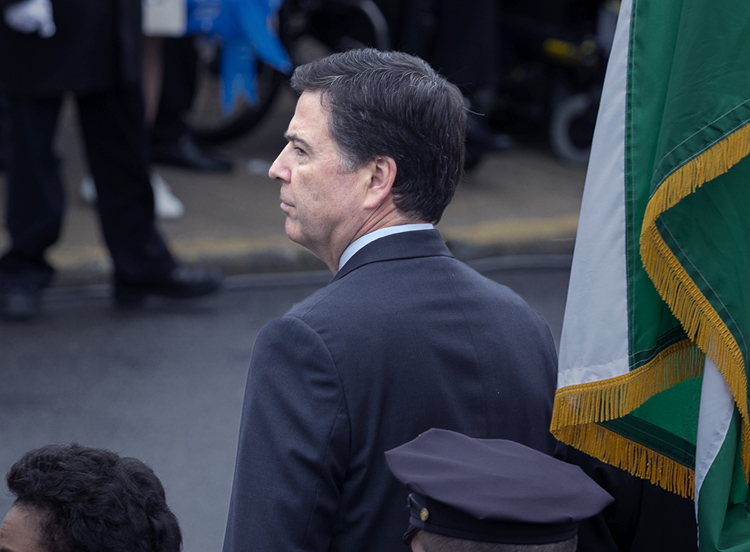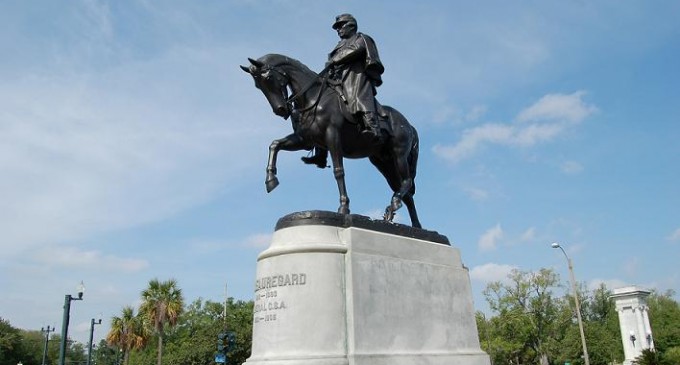
Last week, the firing of FBI director James Comey ignited a firestorm. From the look of it, the sitting president removed the agency’s head ostensibly to quash an ongoing investigation into his connection to Russia. People on both sides of the aisle are looking for answers, and the information is, in theory, still coming in. But what’s clear—just check Twitter—is that the American people are losing their faith in political institutions.
That’s understandable, to say the least. But if that diminished faith moves to something closer to despair—again, check Twitter and you’ll see plenty of despair—then we have a problem. Because if you put your trust in governments, you’ll always be let down. That’s why we have to find somewhere more trustworthy.
“There are not fewer children living stressed, chaotic lives in America now, there are more. There will be more still because among the things America no longer manufactures is stability,” writes Peggy Noonan in her book The Time of Our Lives. We see this loss of stability in the distrust many have in our public and private institutions, in the chaos of family life and how that affects everything from education to the opioid abuse crisis, to the deep division in our country seen most clearly in the rural and urban divide in this last election.
Stability is needed to provide a solid foundation from which one can find economic, educational and relational success. Stability offers a place one can stand and know they are secure. It offers a place to belong. The Church can and should be a source of stability to our communities. America may no longer manufacture stability, but the Church of Jesus Christ can in at least three ways.
The Stability of Place and Presence
While the Church is not just a building, the people of God gather together weekly in a specific place. In this place something glorious, mysterious and eternal is happening. To our community these buildings represent the presence of God meeting the people of God. The stability of God’s presence meeting God’s people in this specific place week to week provides a place where our communities can know God is there, a place to see the mystery of the body of Christ broken and the blood of Christ spilled, we witness new life symbolized in baptism, we hear the word of God proclaimed, we sing songs of praise, we pray together and for one another and we fellowship with our brothers and sisters in Christ.
Through these corporate disciplines we experience stability. The rootedness of these disciplines connect us with past generations and churches around the globe and stands us on solid ground from which to face the next week. In Desiring The Kingdom: Worship, Worldview, and Cultural Formation, James K.A. Smith writes, “We are a stretched people, citizens of a kingdom that is both older and newer than anything offered by ‘the contemporary.’” The contemporary itself is not bad as long as it still grounds us in the truth handed to us from former generations and leads us to the presence of God.
Our worship happens in the same room, the same building, in the same community week in and week out. Our communities know God’s people will worship God and this consistency of God’s glory in this place through these corporate disciplines gives a desperately needed stability to our lives and to those in our community.
The Stability of Truth
We have the permanence of the truth and reliability of God’s word. Within God’s Word, one of the bedrock truths to build our churches and our lives on is the narrow gate of salvation being by faith alone in Christ alone. Jesus is the way, the truth and the life. No one comes to the Father but through Him (John 14:6). The unequivocal truth of salvation in Christ alone gives stability. It provides a place for us to stand in the midst of the storms of this life and to know we are secure.
The cross of Christ and His resurrection is another stabilizing truth for the anxiety of our lives. Paul in 1 Corinthians 15:14 tells the Church, “If Christ has not been raised, then our preaching is in vain, and your faith is in vain.” The resurrection is the cornerstone of our faith. The hope of resurrection life can be experienced now. Every moment of suffering, loss and grief can be faced with the hope of redemption and restoration to come. The resurrection is the down payment of this hope. This hope is sure because the tomb is empty. The stability of hope offered to our hearts when we build our lives on the death and resurrection of Jesus helps us weather the fear, anxiety and suffering of this world.
God’s promises also calm the chaos of our lives. Philippians 1:6 reminds us, “He who began a good work in your will bring it to completion.” God will complete His saving work in us. No matter what we walk through God is working in us. This truth of God’s good, perfecting work in us and the promises of God to sustain us gives us the peace that surpasses all understanding (Philippians 4:7). We know this peace and the truth of these promises because the Holy Spirit Himself dwells within our lives. The very presence of God comforts and sanctifies us. Our world is searching for something to hold on to and the stability of the truth of God’s word and what it reveals is an anchor for our soul.
The Stability of Love
God’s love is constant (Romans 8:39). The love of so many seems so fickle. We look to the breakdown of the family, the absence of fathers in so many homes and it can be difficult to talk about the love of our heavenly Father. But God’s love is not capricious. God’s love is a pursuing and faithful love. He loves us right where we are. Our communities are filled with men and women who have never known a constant, abiding, forgiving love. The Church proclaims the good news of a loving, covenant fulfilling God. God’s love stabilizes hearts yearning for acceptance and a place to belong. Out of God’s constant, pursuing love we can experience the stability needed to live in a world filled with fickle love and we can offer this stable love to our communities.
Jesus tells His disciples the world will know they belong to Him by their love for one another (John 13:35). The second part of the Great Commandment is to love our neighbor as ourselves (Mark 12:31). For the Christian there is no escape clause from the command to love. The Church loves their surrounding community and in their Gospel-fueled love provides stability where the broken and hurting can come to find redemption and restoration. The Church is a place where we can bring all of our brokenness and chaos with us and know God’s love right where we are. When we experience the love of God we reach back out to those looking for this faithful, unchanging love. God’s love never fails and each local church must embody this love to those desperately needing to know it all around them.
The social fabric of America seems to be deteriorating more and more every day. The popularity of post-apocalyptic stories in pop culture reveals this anxiety and feeling of loss. One of the main factors is a lack of stability, a lack of a place to belong, a loss of truth to build our lives on and a feeling of isolation without love. The Church can offer the stability of a place where the people of God meet the presence of God in worship, the stability of the truth of God’s word and the stability of Gospel love where one can know God loves them through the love of His people.






















